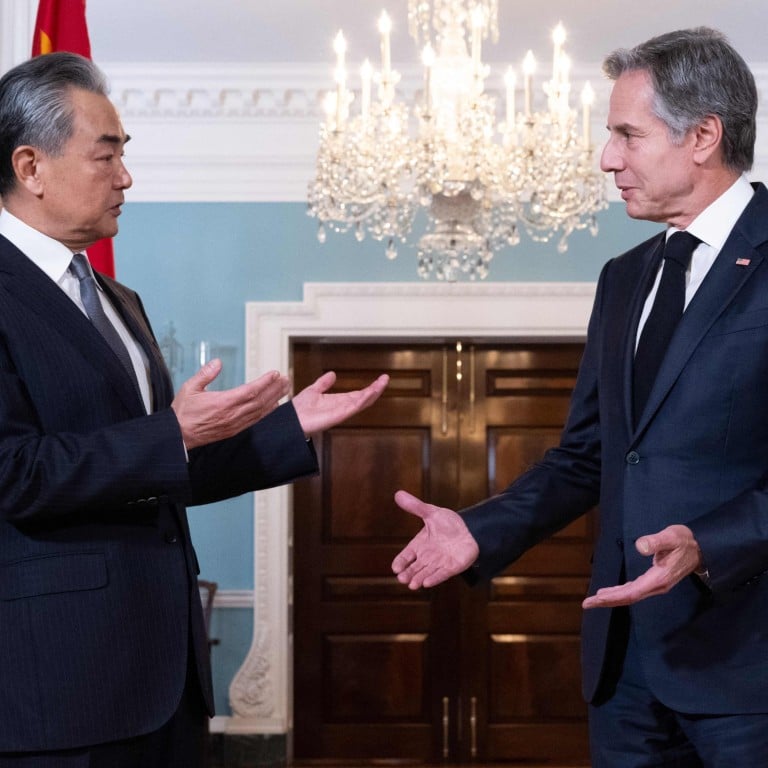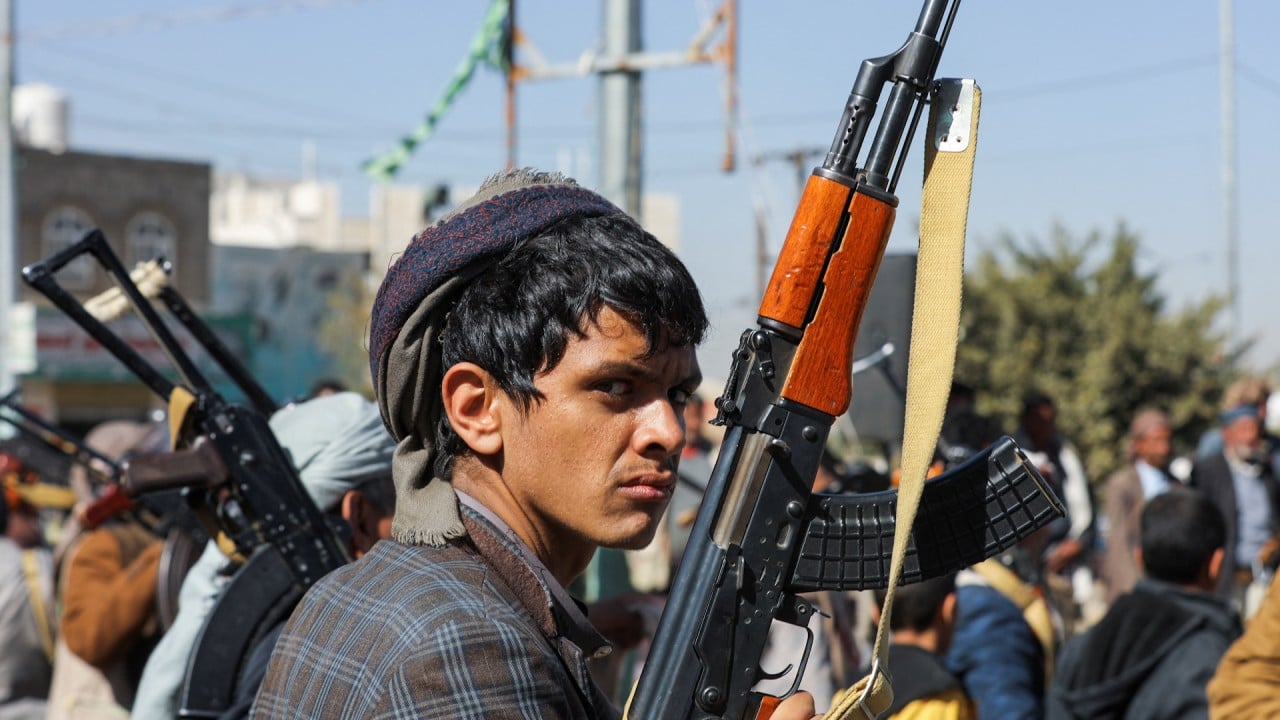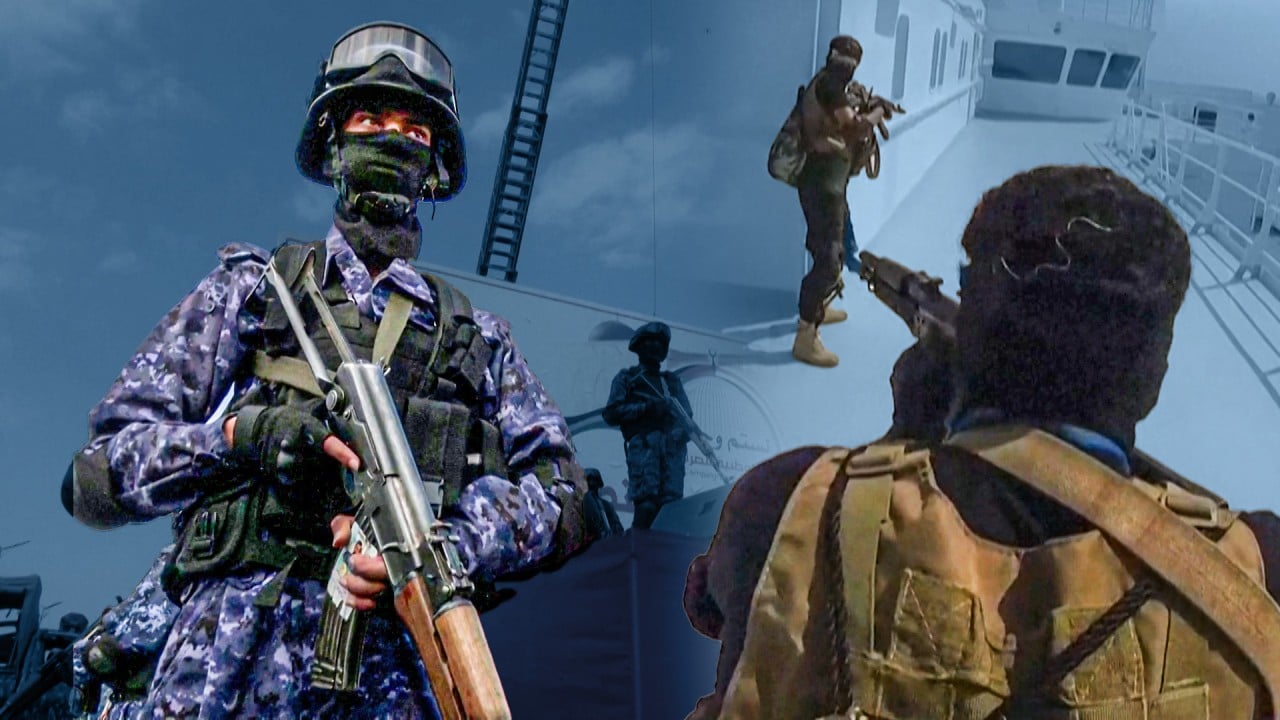
Iran embassy attack: in Wang-Blinken call, China urges US to play constructive Middle East role
- As US appeals to China to use influence over Iran, Beijing says the Gaza war must be ended as soon as possible
- Phone call between top diplomats comes in aftermath of suspected Israeli bombing of Tehran’s embassy in Syria
In a phone call with his US counterpart Antony Blinken this week, Chinese Foreign Minister Wang Yi urged Washington to play a “constructive role” in the Middle East, Beijing said on Friday.
Wang also stressed the “inviolable” right to security of diplomatic institutions and the need to respect the sovereignty of Iran and Syria”, the ministry said.
China condemns Israeli attack on Iranian consulate in Syria
In Beijing on Friday, ministry spokeswoman Mao Ning quoted Wang as saying it “is imperative that the Gaza conflict be brought to an end as soon as possible. China calls on all parties to the conflict to … cease fire immediately and to prevent a humanitarian crisis.
“China will continue to play a constructive role in resolving the Middle East issue based on justice and correctness … The United States, in particular, should also play a constructive role.”
US sees missile strike on Israel by Iran, proxies as imminent
Washington’s efforts to engage Beijing came after at least seven of Tehran’s military advisers, including General Mohammad Reza Zahedi, who managed Iranian operations in Syria and Lebanon, were killed in the air strike in Damascus.
Israel has not claimed responsibility for the attack, but both Iran and Syria blamed Israel for the deaths. The New York Times cited four unnamed Israeli officials as acknowledging Israel carried out the attack.
Concerns are rising in Israel that Iran could mount a direct attack on Israel within days, the Wall Street Journal reported on Thursday. But a person briefed by the Iranian leadership told the Journal that no final decision had been made.
Despite the potential spillover, there have been no public diplomatic exchanges between China and Iran since the air strike.
Chang Hua left his post as China’s ambassador to Iran earlier this month as a part of a regular reshuffle of diplomats and Beijing has not appointed an envoy for the Gaza war.
After the air strike, Geng Shuang, China’s envoy to the United Nations, said such assaults “must be stopped immediately”, adding that “spillover risks [are] becoming increasingly evident, and the situation in the Middle East has become precarious”.
Geng also directly condemned Israel’s frequent assaults on Syria and Lebanon, saying they “seriously violated the sovereignty of the countries, and increased tensions throughout the region”.
He called on countries with significant influence over Israel to play “a constructive role”, a clear reference to the US.
China walks a fine line in the Red Sea. Will its diplomatic mission succeed?
Blinken’s call is not the first time Washington has asked Beijing to intervene in Gaza-related conflict, especially in relation to Tehran.
In January, the US asked China to urge Iran to rein in attacks in the Red Sea mounted by Iranian-aligned Houthi militants. However, the request appeared to yield little result.
The Pentagon also invited China to safeguard commercial traffic in the Red Sea, but Beijing has yet to accept. Beijing, which has a naval base in Djibouti, says it has not sent any forces to guard the region from the Houthi attacks.
Jean-Loup Samaan, a senior research fellow of the Middle East Institute at the National University of Singapore, said the US engagement with China indicated that Washington considered Beijing to be a “major player” in the Middle East.
He said it showed that the US saw China as “one that can influence regional rivalries”, and suggested that the US and China “share common interests in the region, which is stability and access to its energy supplies”.
“Something very different from what we see in the US-China relationship in [the Asia-Pacific],” he added.
But China’s capacity for and interest in mediating in the conflicts might be limited.
“The conflict revealed a Chinese policy that is reluctant to get trapped in regional disputes the way the US and other Western powers have gotten for decades,” he said.
“Because China’s strategy towards the Middle East emphasises trade ties and non-interference in domestic affairs, its government does not want to jeopardise its credibility among Arab partners.”
Yin Gang, a research fellow at the Chinese Academy of Social Sciences, said Beijing was likely urging Tehran not to escalate the situation.
“China is probably following consistent diplomatic practice [since the Gaza war], which should be to advise Iran to stay calm and ask for international help in case of a conflict spillover.”
Noting China’s permanent membership of the United Nations Security Council, Yin said the US looked to China because of its global impact on security issues while not being one of the conflict parties such as Russia, which sent forces in Syria.



